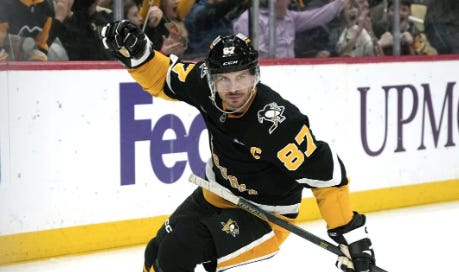No. 244: SIDNEY CROSBY & CONOR BEDARD / The critics are doubting the latest generational player. Remembering when they buried No. 87 (& this humble biographer).
Yup, the first pick in the 2023 draft is slumping & the media's reflexive response is to deem him over-rated, all hype, a bust. You think scribes learn from past mistakes? Good luck with that.
Keep reading with a 7-day free trial
Subscribe to How to Succeed in Sportswriting (without Really Trying) to keep reading this post and get 7 days of free access to the full post archives.




